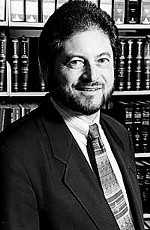Naked City
No Extra Credit
By Kevin Fullerton, Fri., April 13, 2001

Three years ago, critics of the state's largest affordable housing program were considered pariahs in the housing industry and dismissed as cranks and alarmists by the office of then-Governor George W. Bush. But after years of audits, newspaper investigations, and persistence from housing advocates -- not to mention last fall's conviction of a corrupt housing agency board member -- substantial legislative reform of the state's low-income tax credit program is sailing steadily toward the governor's desk. Now, no one wants to be seen openly opposing the reformers.
Rep. Harryette Ehrhardt, D-Dallas, is still holding her breath this week as her bill overhauling the Texas Dept. of Housing and Community Affairs' tax credit allocation process gets reviewed in the Senate. It was Ehrhardt who first presented evidence to the governor back in 1998 that the housing agency was handing out subsidies from its $200 million pool of federal tax credits to builders with inferior projects and questionable connections to TDHCA staff and board members. Last year, the state Sunset Advisory Commission dropped a harsh indictment on TDHCA, suggesting a shakeup of the agency's board to remove the potential for conflicts of interest.
The sunset provisions are contained in HB 3449, sponsored by Rep. Pete Gallego, D-Alpine, and SB 322, by Sens. Eddie Lucio, D-Brownsville, and Judith Zaffirini, D-Laredo. Developers and their lobbyists seem to have checked the wind closely and haven't gotten in the way of those bills, with one notable exception: Terral Smith, the former top-level aide to Gov. Bush who oversaw the governor's "investigation" of problems at the housing agency, showed up on behalf of El Paso builder Woody Hunt, who received tens of millions in state tax credit awards and was one of Bush's biggest financial backers, to lobby for keeping the board structure intact. (This one day after former TDHCA board member Florita Bell Griffin was sentenced to prison for using her position on the board to steer tax credits to her own project.) But the more politically dicey proposition is whether Ehrhardt's more concentrated reforms -- aimed directly at overhauling the agency's internal mechanisms, and described by affordable housing advocates as "everything we want" -- will be folded into the sunset bills.
Ehrhardt has already had to compromise her legislation to get it through the House Urban Affairs Committee, removing provisions that would have capped the size of tax-credit awards that developers could get for new projects. Developers objected to those limits, arguing that poor rural areas, where low rents make the construction of apartment complexes expensive, would be hurt. But Ehrhardt argues that her substitute bill, whose fate could be decided by both House and Senate committees this week, is still potent medicine. "If we get this passed intact, it'll be a drastic, major change," says Ehrhardt aide Tim Thetford.
Ehrhardt's legislation would force TDHCA to subject its tax-credit allocation process to rigorous public review -- posting all applications for awards online and granting onlookers a forum for comment. No longer would applicants be allowed to change their applications after the filing deadline -- a common practice at the agency that has fomented charges of favoritism for years. Scores awarded to projects would have to be forwarded to the TDHCA board 30 days before the board meets to vote on awards, instead of the week before.
"You probably can't ever write a law to keep people from messing up, but you can make it a lot more difficult," says Texas Low Income Housing Information Service director John Henneberger. "The main reform they're doing is opening [the process] up to the light of day at every stage … giving a reasonable time period for people to look at these things."
Ehrhardt's bill would also block developers from using nonprofit organizations as fronts for their projects, a practice that in past years has drawn dubious nonprofit groups from out of state to apply for tax credits on Texas projects, because the agency awards bonus points to nonprofit builders. Under Ehrhardt's provisions, nonprofits could not participate in the tax credit program unless their governing boards reside within 90 miles of the building site and can show a majority financial interest in the project.
Tedious as such details are, onlookers agree that they go straight to the heart of the problems with the tax-credit program --the secretive judgments and unexplained rationales that staff use to choose one project for an award over another. Ehrhardt argues that her legislation will not prove onerous to developers who provide the state quality affordable housing in return for subsidies. A more open process will only weed out the cheaters and opportunists, she argues.
Neither the offices of Sens. Lucio or Zaffirini, nor that of Senate Intergovernmental Relations chair Frank Madla, D-San Antonio, report any strong resistance to Ehrhardt's bill in their chamber. That's not to say that influential developer lobbyist Joe Bishop hasn't been phoning in regularly, however, and Gov. Perry's office did not return a call requesting comment. Ehrhardt's "bill has wonderful characteristics," says developer Dick Kilday, a board member of the Texas Affiliation of Affordable Housing Providers. "We are generally in high agreement in what we want to happen to that bill."
Got something to say on the subject? Send a letter to the editor.








